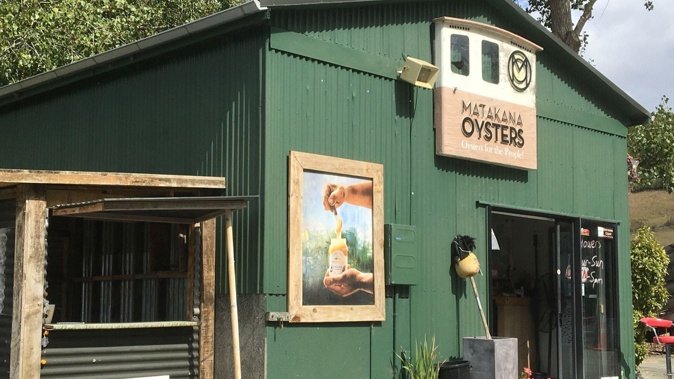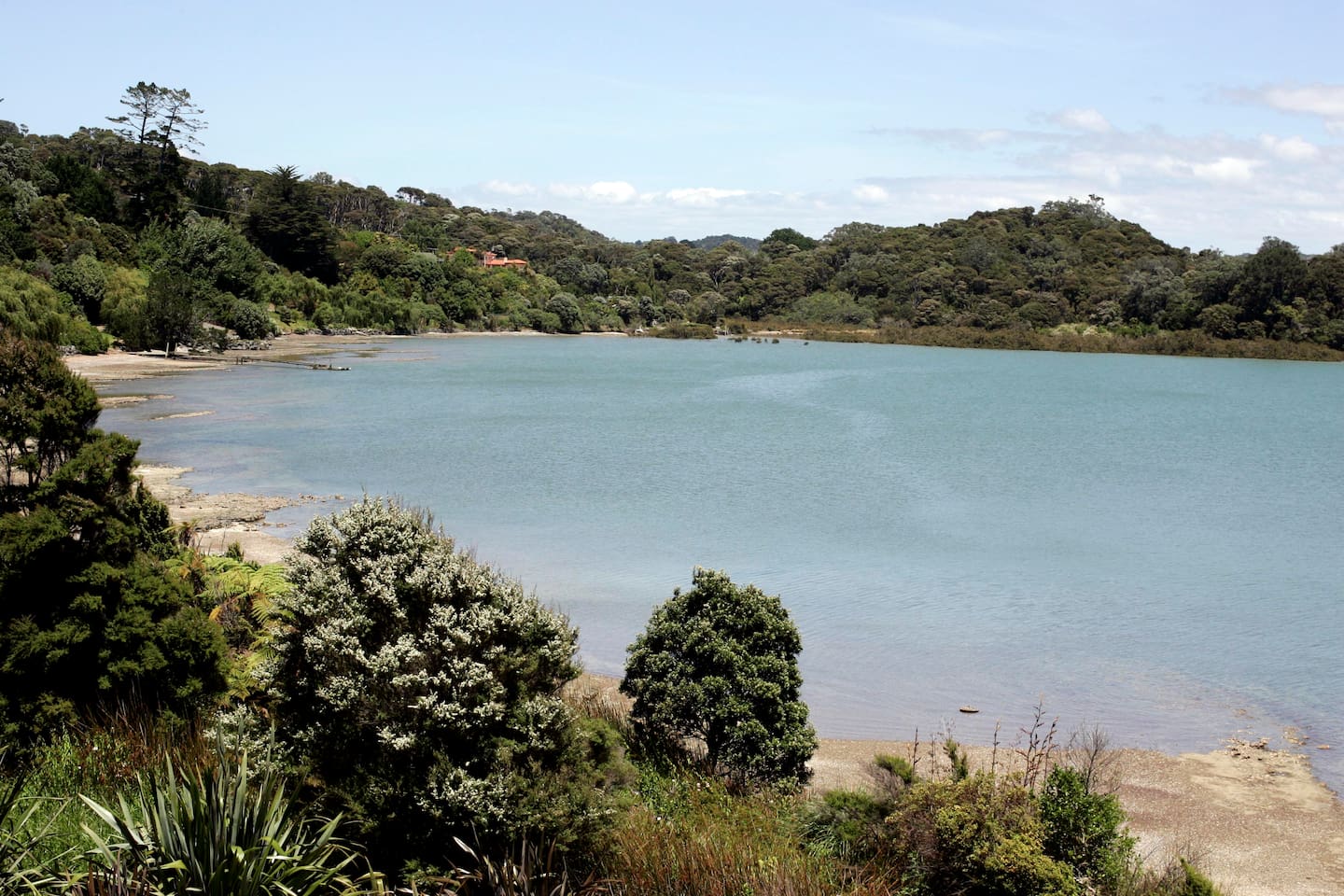
- Oyster farms in north Auckland are closed due to norovirus contamination, threatening their survival.
- Owners blame Auckland Council and Watercare for sewage overflows caused by inadequate infrastructure.
- Watercare has a $450 million programme of works to improve wastewater services, with completion expected in 2028.
Oyster farms in north Auckland are closed until further notice and one producer says it is unlikely to survive after norovirus was found in the water where the shellfish are grown.
Matakana Oysters owner Tom Walters has blamed Auckland Council and Watercare, saying “they have let the area grow out of control before the infrastructure was put in place”, and now sewage overflows into waterways whenever it rains.
Walters said he detected norovirus in the water of his oyster beds after taking tests. Health New Zealand describes norovirus as an infectious virus that causes vomiting and diarrhoea.
He says it has affected his business so badly he will be reduced to selling soup before shutting up shop for good.
The region’s water body, Watercare, says while it has great sympathy for affected businesses a major project was planned to reduce overflows to the Mahurangi River.
This would be completed in 2028. Work on a temporary reduction measure would start in August.
Owner of nearby Mahurangi Oysters, Jim Aitken, said his business has been closed all season because of the contamination.
“There are 10 individual operations, all different sized [around Matakana]. Some of these guys have been working 30-plus years doing what they love, caring for and supporting oysters in the harbour.
“We’re just trying to do our best and we’re out of options. We’re only small farmers. The industry alone is massive.
“In Mahurangi itself, it’s probably up to a million dollars a year of potential income and jobs,” Aitken said.
Walters said: “We’ve had many crises over the years, but none have compared to this”.
“I have been selling oysters for 27 years at the Green Shed [the farm’s retail business]. I really doubt we will be able to survive.
“Over the next week, I will probably try to just sell soup and probably say goodbye to any of you that do love the place.”
Walters levelled a salvo at Auckland Council, its water company Watercare and “growth”.
“Here is a situation where growth has killed an industry that’s been here for 50-plus years, an industry that helps the environment,” Walter said.
“Over the last five years, what was a small sewage overflow after 100mm of rain is now a huge amount after only 10mm.
“This year, Warkworth has had over 1000 cubic metres of overflows and that’s really just since the middle of April, one month.”
He claimed Auckland Council and Watercare had classed the nearby Mahurangi River as non-recreational “to allow themselves to write resource consents for these overflows”.
“According to them, nobody swims, kayaks, fishes, sails or frolics in the river, let alone harvests wild shellfish.”
Watercare’s chief strategy and planning officer Priyan Perera said the company was committed to improving the situation.
“We sympathise with the Mahurangi Harbour oyster farmers and are committed to improving the situation for them.
“Watercare is currently delivering a $450 million programme of work that will transform wastewater services in the Warkworth area.
“Unfortunately, it is the final piece of the puzzle - the Warkworth growth-servicing pipeline - that will make the biggest difference in terms of reducing wet weather overflows to the Mahurangi River. This pipeline is currently being designed and we expect to complete it in 2028.
 Oysters harvested from the Mahurangi Harbour have been recalled due to a gastro bug risk. Photo / File
Oysters harvested from the Mahurangi Harbour have been recalled due to a gastro bug risk. Photo / File
“While this pipeline is still some time away, we are doing everything we can to reduce the frequency of overflows in the shorter term. This includes installing a larger wastewater pipe along three sections of Elizabeth Street in the town centre.
”We received consent to do this work earlier this month and expect to start in August. We are also continuing to investigate where excessive stormwater is getting into the wastewater system, so we can address it."
Perera said Watercare was in regular contact with oyster farmers about the work and would provide alerts to any overflows to the harbour.
“We are meeting with them in person next week to update them on where we’re at.”
Rodney Local Board member Geoff Upson said it was a case of needing to prioritise funding, and questioned some spending going to less-pressing issues.
“It really frustrates me that we spend money on hurt-feeling stuff, and we’re not spending any money trying to catch up on these infrastructure deficits.”
A meeting between Watercare and affected businesses was planned for Monday, he said.
Auckland Council has been approached for comment.
Raphael Franks is an Auckland-based reporter who covers breaking news and local stories from Tāmaki Makaurau. He joined the Herald as a Te Rito cadet in 2022.
Take your Radio, Podcasts and Music with you









